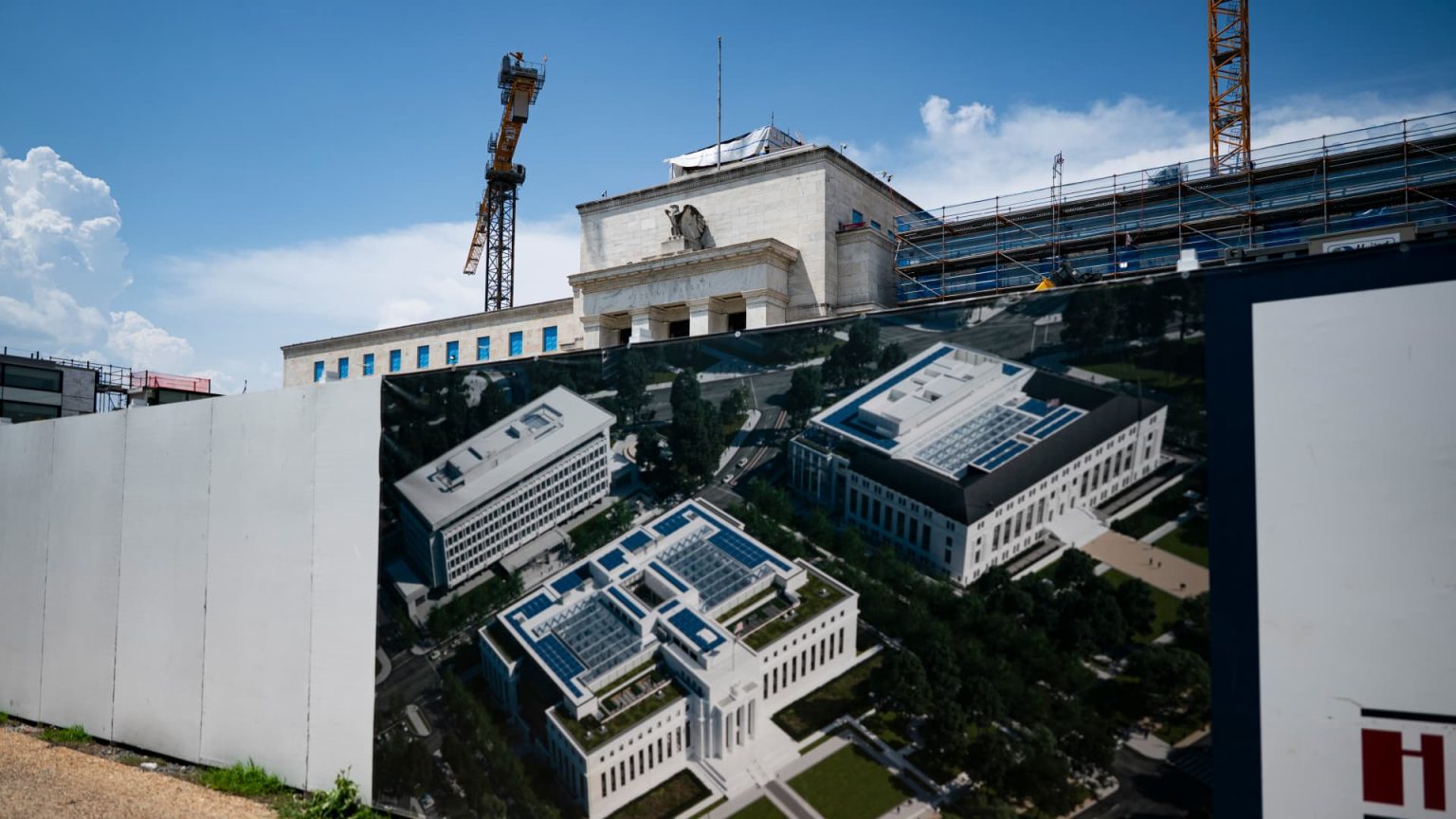The Federal Reserve’s ongoing building expansion project has come under scrutiny as officials question the management and financial oversight of the initiative. Originally budgeted at $2.5 billion, the project’s escalating costs have elicited criticism from the White House, prompting Fed Chair Jerome Powell to request an investigation by the inspector general. This inquiry follows sharp remarks from government officials, including President Donald Trump and director of the National Economic Council Kevin Hassett, regarding the perceived fiscal mismanagement associated with the expansion.
| Article Subheadings |
|---|
| 1) Overview of the Federal Reserve Expansion Project |
| 2) Government Scrutiny and Oversight Issues |
| 3) Reactions from Officials and Key Figures |
| 4) The Role of the Inspector General |
| 5) Future Implications for the Federal Reserve |
Overview of the Federal Reserve Expansion Project
The Federal Reserve is undertaking an extensive expansion project at its headquarters, the Marriner S. Eccles Federal Reserve building located in Washington, D.C. This initiative was first announced with an estimated cost of $2.5 billion, aimed at modernizing the central bank’s facilities to meet current standards and safety regulations. The project is expected to enhance functionality and ensure the integrity of the buildings, which have seen minimal renovations since their inception. Various safety issues will be addressed, including the removal of hazardous materials like asbestos and lead. However, the project’s costs have spiraled, leading to significant financial concerns.
Government Scrutiny and Oversight Issues
The expansion project has faced intense scrutiny from the White House, particularly due to rising costs which have led to accusations of fiscal mismanagement. Kevin Hassett, the director of the National Economic Council, articulated the administration’s concerns during a recent CNBC appearance, emphasizing that the Federal Reserve’s ability to print money shouldn’t equate to unchecked spending on infrastructure. Critics argue that there needs to be a more robust oversight mechanism, given the Federal Reserve’s unique position as an independent agency. The growing controversy around the project has drawn attention to the need for greater transparency and accountability in the management of public funds, whether explicitly taxpayer-funded or not.
Reactions from Officials and Key Figures
In response to the expansion project’s rising costs, various officials have expressed their concerns. During a recent interview, Russell Vought, head of the Office of Management and Budget, compared the lavish nature of the project to the grandeur of the Palace of Versailles. This analogy underscores the sentiment that the project has become emblematic of excess, suggesting that it reflects poorly on the Federal Reserve’s governance. Additionally, former Fed Governor Kevin Warsh has characterized the renovation expenses as “outrageous” and indicative of the central bank losing its way amid rising political pressures and economic uncertainties. Warsh, considered a potential successor to Chairman Powell, has further called for more stringent control over the expenditures linked to the renovation.
The Role of the Inspector General
In light of the criticisms and escalating costs, Fed Chair Jerome Powell has enlisted the inspector general to conduct a review of the expansion project. The inspector general, an independent figure who oversees the Federal Reserve and the Consumer Financial Protection Bureau, is tasked with identifying fraud, waste, and abuse within the bank. This investigative move aims to restore public confidence in the Federal Reserve’s financial decisions and clarify the rationale behind the cost increases. It remains to be seen what findings will emerge from this review, but it is anticipated to encompass a thorough examination of the project’s expenditures and management practices.
Future Implications for the Federal Reserve
The fallout from this controversy may have long-lasting implications for the Federal Reserve’s reputation, as well as its operational framework. As the institution navigates the dual challenges of expanding its facilities while grappling with questions of fiscal responsibility, the political and public pressure to maintain oversight will likely increase. Should the inspector general’s review reveal significant mismanagement or inefficiencies, it could prompt calls for broader changes within the Federal Reserve to ensure greater accountability and transparency in future projects. As the central bank seeks to maintain its independence amidst political scrutiny, the findings of this investigation will be crucial in shaping its path forward.
| No. | Key Points |
|---|---|
| 1 | The Federal Reserve is facing criticism over a $2.5 billion building expansion project. |
| 2 | Government officials are questioning the oversight and management of the expansion’s rising costs. |
| 3 | Calls for greater transparency and financial responsibility are growing amid heightened scrutiny. |
| 4 | The inspector general will review the project’s expenditures and decision-making processes. |
| 5 | The findings could affect the Federal Reserve’s future operational policies and reputation. |
Summary
The expansion of the Federal Reserve’s headquarters has ignited a broader discussion about fiscal responsibility and oversight within governmental institutions. As budgetary concerns mount and public scrutiny intensifies, the request for an investigation by the inspector general may pave the way for necessary reforms within the Federal Reserve. The outcome of this inquiry, along with the implications for future projects, will be closely monitored by both political leaders and the general public, aiming to ensure that governmental agencies uphold the highest standards of financial integrity.
Frequently Asked Questions
Question: What prompted the inspector general’s review of the Fed’s expansion project?
The review was instigated by requests from Fed Chair Jerome Powell following mounting criticism and concerns from government officials regarding rising costs and perceived mismanagement of the $2.5 billion expansion project.
Question: What are some of the challenges faced by the expansion project?
The project has experienced significant cost overruns, prompting questions about oversight, management efficiency, and the overall necessity of such expenditures in a financially scrutinized environment.
Question: How will the findings of the inspector general’s review affect the Federal Reserve?
If the review uncovers significant issues regarding financial management or oversight, it could lead to calls for more stringent controls and accountability within the Federal Reserve, as well as potential reforms in their future projects.


